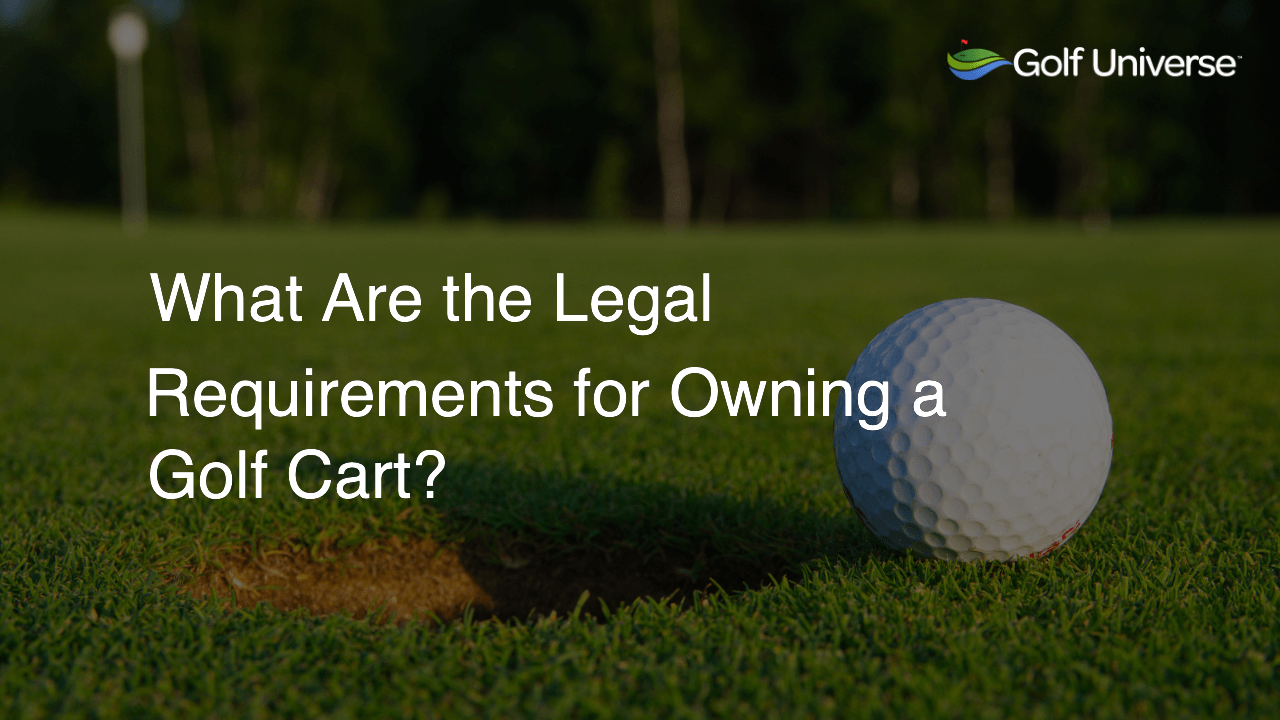To legally own a golf cart, one must follow local laws and regulations which may include registering the vehicle, obtaining insurance, meeting equipment standards (i.e., headlights, taillights, mirrors, and seat belts), and adhering to age and driver’s license requirements. Rules vary by jurisdiction, so it’s essential to consult with local authorities for specific guidelines.
Understanding Local Laws and Regulations
Before purchasing a golf cart, it’s crucial to familiarize yourself with the specific laws and regulations for operating and owning a golf cart in your area. Consult with local authorities, such as the Department of Motor Vehicles (DMV) or your city’s governance office, to obtain accurate information on rules and restrictions.
Registration and Insurance Requirements
In some jurisdictions, golf carts are considered motorized vehicles and may require registration and insurance for legal operation. Double-check these requirements in your area and obtain the necessary forms and coverage before taking your golf cart out on the green or road.
Registering Your Golf Cart
Register your golf cart as prescribed by your local DMV for proper tracking and ownership records. You may have to pay associated registration fees, submit necessary paperwork, and undergo inspections, depending on the location.
Insurance for Golf Carts
Golf cart insurance coverage may be required, providing liability protection and coverage for physical damage. Some golf cart owners may also opt for additional coverage options, like personal property protection, for added security.
Meeting Golf Cart Equipment Standards
Equip your golf cart with required safety features, including headlights, taillights, mirrors, seat belts, and potentially windshield wipers or horns, based on local laws. Ensure that your golf cart abides by speed restrictions and other safety standards within your community.
Modifications for Street-Legal Golf Carts
If you intend to use your golf cart on public streets, you may need to modify it to meet specific requirements. Consult local regulations for street-legal golf carts, which may include turn signals, reflectors, and other necessary add-ons.
Age and Driver’s License Requirements
Legal operation of golf carts often includes restrictions on driver age and licensing. Some locations may require golf cart drivers to be at least 16 years old and possess a valid driver’s license. Always adhere to these guidelines to ensure a safe and legal experience for all.
Zoning and Community Rules
When owning a golf cart, it’s essential to consider not only the legal landscape but also the zoning and community rules in your area. Some neighborhoods and gated communities might have additional regulations regarding golf cart ownership and operation. Make sure you’re aware of these guidelines and follow them to maintain a positive relationship with your neighbors.
Taking Golf Cart Safety Seriously
At Golf Universe, we believe that safety should always be a top priority, both on and off the golf course. By adhering to legal requirements for owning a golf cart, you demonstrate a commitment to responsible ownership and ensure the safety of yourself, passengers, and others in your community. Regularly inspect your golf cart, perform necessary maintenance, and address any issues promptly to maintain compliance and prevent accidents.
Golf Universe Tips for New Golf Cart Owners
Now that you’re familiar with the legal requirements for owning a golf cart, here are a few tips from Golf Universe to ensure you make the best purchase and enjoy a smooth ownership experience:
- Research various golf cart manufacturers, models, and features to find the best fit for your needs and budget.
- Consider purchasing a used golf cart that’s been properly inspected and maintained to save some money while still enjoying the benefits of golf cart ownership.
- Develop a relationship with a reputable local golf cart dealer who can assist you with routine maintenance, modifications, and advice on keeping your golf cart in compliance with legal requirements.
- Join local golf cart clubs or online forums to stay updated on golf cart-related news, potential changes in legal requirements, and best practices for ownership and maintenance.
Armed with this vital information, you’re well on your way to becoming a responsible and well-informed golf cart owner. As you embark on this exciting journey, remember that Golf Universe is here to provide expert advice, insight, and guidance as you navigate the world of golf cart ownership and beyond.
Frequently Asked Questions
In response to our blog post, ‘What Are the Legal Requirements for Owning a Golf Cart?’, we’ve compiled a list of frequently asked questions that may arise. These answers aim to clarify some uncertainties and provide valuable insights to help you better understand legal implications for owning a golf cart.
Do all states require registration and insurance for golf carts?
No, not all states require registration and insurance for golf carts. Rules and regulations vary by jurisdiction. Be sure to consult your local DMV or governance office for specific details and requirements in your area.
Are there any age restrictions for driving a golf cart?
Yes, there are often age restrictions for driving a golf cart, which typically require the driver to be at least 16 years old and in possession of a valid driver’s license. However, age restrictions may vary depending on local regulations. Consult your local authorities for the precise age limit in your area.
Can golf carts be driven on public roads?
Golf carts can be driven on public roads in some areas, but this depends on local laws and regulations. They may also have to meet certain requirements to be considered street-legal, such as having headlights, taillights, and turn signals. Before driving a golf cart on public roads, check your local laws and rules for any restrictions or modifications needed.
How do I know if my golf cart meets equipment standards?
Your local DMV or governance office can provide information on the specific equipment standards for golf carts in your area. Meeting these requirements typically entails installing necessary safety features like headlights, taillights, mirrors, seat belts, and any other required accessories. If purchasing a new golf cart, consult the manufacturer’s guidelines for compliance with safety standards.
What type of insurance should I get for my golf cart?
Depending on local regulations, you may need liability insurance for your golf cart, which covers property damage and bodily injury caused during operation. Optional insurance policies may include comprehensive, collision, and personal property coverage. Consult with your insurance provider to find a policy that best suits your needs and complies with your local legal requirements.











